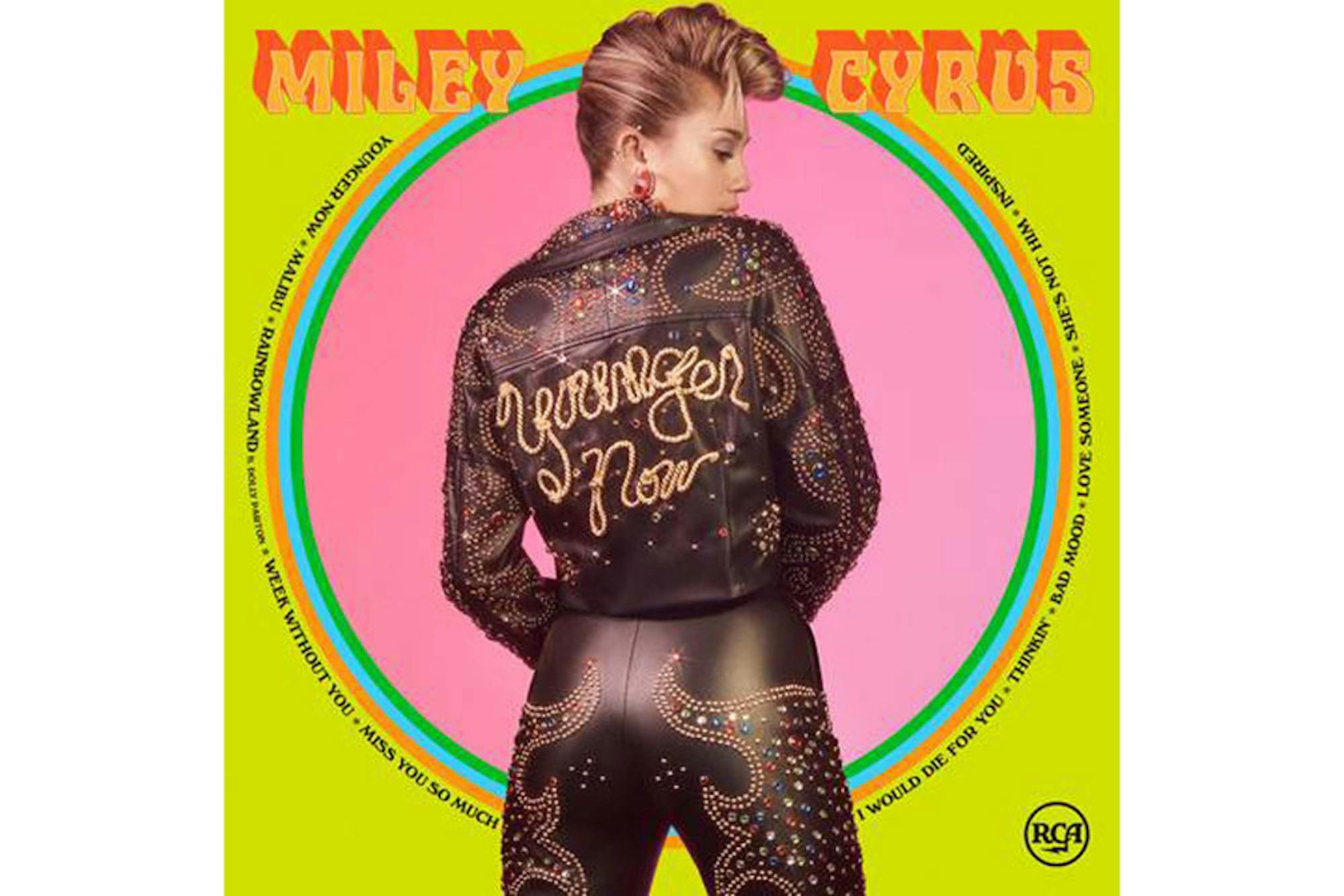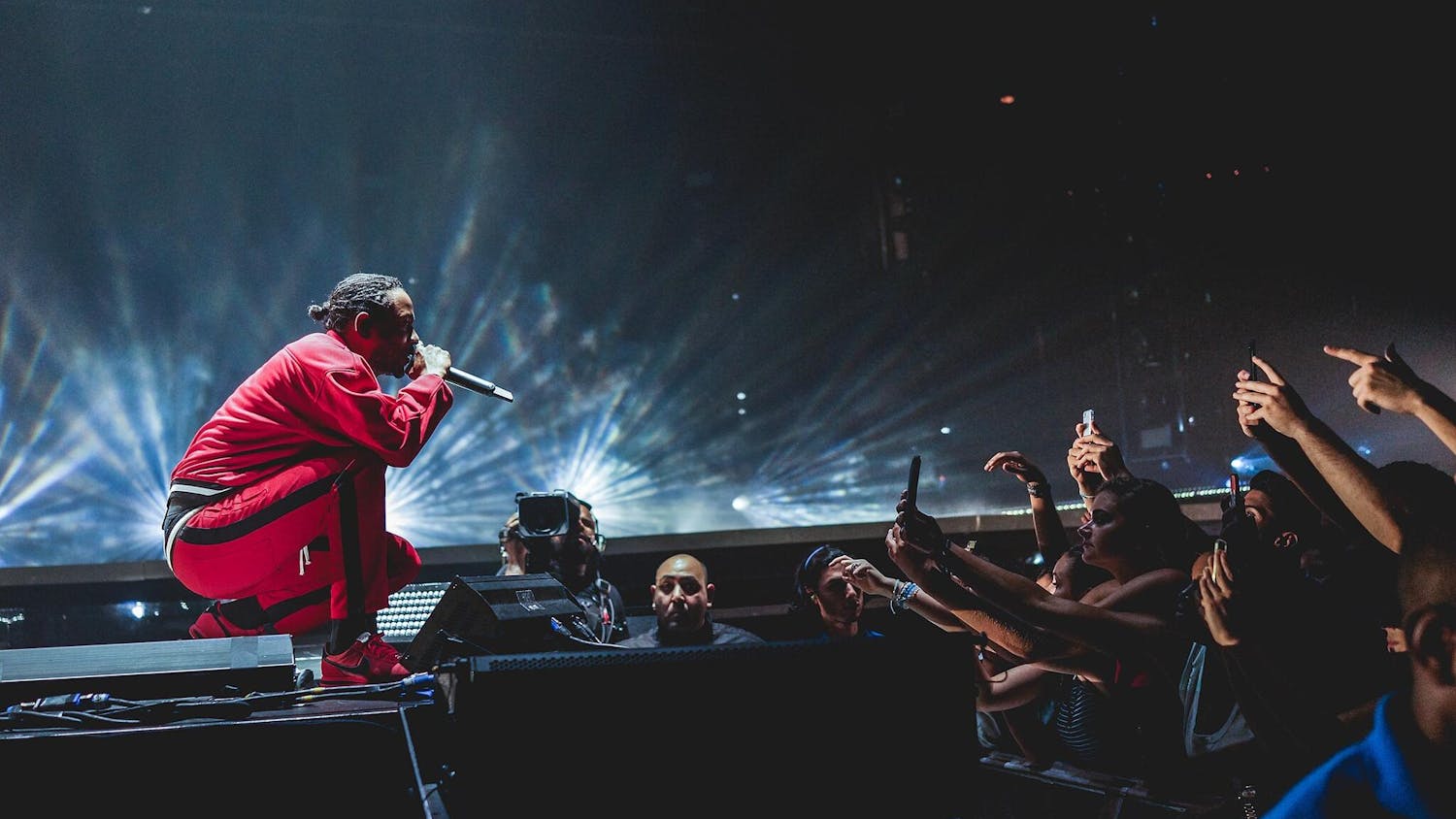2017 is shaping up to be the year of the post-Disney starlet. Selena Gomez led the charge with the excellent “Bad Liar,” ahead of other former Disney stars staging their returns to the Top 40. September alone saw two of them release their latest LPs, signaling different moments for each of them career-wise. Check out the highs and lows of each release below.
Miley Cyrus, “Younger Now” (2017)
Following the crash-and-burn approach of the wildly uneven but nonetheless entertaining “Bangerz” (2013) era, Cyrus retreated to heartland America for her latest studio album, trading a hip-hop-inspired sound for a country one. The result is “Younger Now,” released on Sept. 29, an album that can be described as Cyrus’ least creative body of work to date, even including her days as “Hannah Montana” (2006–2011).
While it is possible that Cyrus’ exploration of a country sound could be seen as an ode to her godmother Dolly Parton, who is featured on the decent “Rainbowland,” the rest of her sixth LP suffers from banal lyrics and generic production. Lead single “Malibu,” which features an infectious chorus built around the song’s title, feels like a weird mishmash between the been-there-done-that approach of Avicii’s “Wake Me Up” (2013) and any old Mumford & Sons song. Even the aforementioned “Rainbowland” fails to generate the same sort of chemistry that comeback kid of the year Kesha was able to achieve with Parton on her cover of “Old Flames (Can’t Hold A Candle To You)” off her excellent “Rainbow” (2017).
However, the entire album is not a wash, with Cyrus providing some much-needed sonic and topical exploration. “Week Without You” is a nice retro throwback, akin to Rihanna’s “Love on the Brain” (2016), reminiscing of what it would like to be away from her lover. “She’s Not Him,” a tender ballad, is a milestone for pansexual visibility in pop music, with Cyrus herself coming out in 2016.
In the end, it is the album’s title track that best encapsulates the album’s problems. “Younger Now” is a decent ode to change, but like its lyrics, it feels overwrought from the onset. When Cyrus sings “No one stays the same (oh, oh),” it is impossible not to hope that this unremarkable phase of Cyrus’ career will pass just as quickly as the song’s four-minute runtime, so that the old Miley can make her grand return.
Rating: 2.5/5
Demi Lovato, “Tell Me You Love Me” (2017)
For most pop stars, facing one’s struggles in the spotlight can be career-altering. At the age of 18,Demi Lovato, who originally rose to fame in Disney's “Camp Rock” (2008), checked herself into rehab and revealed in an NPR interview last month her struggle with addiction.
“Rock bottom hit me in a moment when I was drinking vodka out of a Sprite bottle at nine in the morning on my way to the airport,” she said.
But 25-year-old Demi Lovato has never been one to shy away from her very real and personal struggles, baring her soul on her latest release. “Tell Me You Love Me,” released Sept. 29, finds Lovato at her most honest, a radical improvement on her underwhelming fifth studio album. While Lovato has never had the antics of Cyrus nor the experimental tendencies of Gomez, her back-to-basics, R&B-inspired approach might be what lifts her into the spotlight while her contemporaries have struggled as of late.
Lovato’s sixth LP opens with the roaring “Sorry Not Sorry,” featuring Lovato successfully fusing a gospel-esque vocal performance with a thumping backbeat to convincingly tell an ex-lover off. The track’s chorus achieves proper anthem status with Lovato belting “Baby, I'm sorry (I'm not sorry) / Bein' so bad got me feelin' so good / Showin' you up like I knew that I would.”
Other highlights on the record include the positively thrilling “Sexy Dirty Love” and sultry “Ruin the Friendship.” The former feels like the X-rated version of Ariana Grande’s equally excellent “Into You” (2016), providing the record with its one true dance floor moment. The latter is a jazzy track dedicated to crossing that line with a friend as Lovato beckons for him to “Put down your cigar and pick me up (pick me up) / Play me your guitar, that song I love (song I love).”
The album’s back half is not quite as strong as its front, featuring a deluge of downtempo tracks. However, there are some gems to be found here, notably the acerbic “Cry Baby” and the us-against-the-world “Hitchhiker.” The second closes out “Tell Me You Love Me” on a strong note, suggesting that this former teen star still has more than a few tricks up her sleeve.
Rating: 4/5
For the records: ‘Wake Me Up When September Ends’ edition

The cover of Miley Cyrus' new album “Younger Now” is released on Sept. 29. The album is criticized to be Cyrus’ least creative body of work to date.
Summary
4.5 Stars





